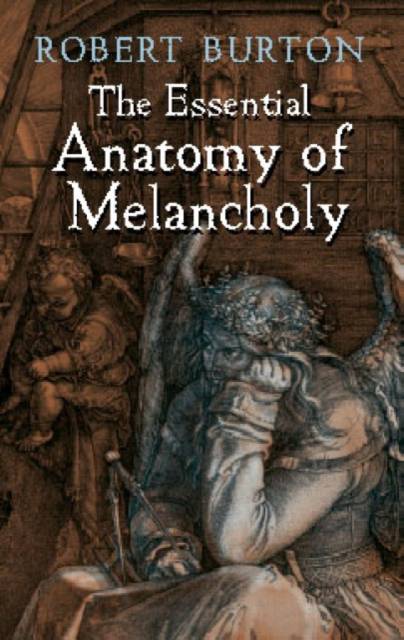
- Afhalen na 1 uur in een winkel met voorraad
- Gratis thuislevering in België vanaf € 30
- Ruim aanbod met 7 miljoen producten
- Afhalen na 1 uur in een winkel met voorraad
- Gratis thuislevering in België vanaf € 30
- Ruim aanbod met 7 miljoen producten
Zoeken
Omschrijving
English churchman and scholar Robert Burton (1576-1639) was a passionate student of medicine, history, literature, and science -- the whole of human knowledge. He was also a witty, pedantic, and eloquent genius, who devoted the major part of his life to writing The Anatomy of Melancholy, one of the richest, most inexhaustible books in the English language. Ostensibly an elaborately systematized medical treatise dealing with various morbid mental states -- their causes, symptoms, and cures -- the Anatomy is much more: a compendium of memorable utterances on the human condition in general, compiled from classical, scholastic, and contemporary sources. For this edition, the editors carefully selected those passages containing the most psychological and general interest, eliminating a good deal of nonessential material, but retaining the incomparable wit, eccentric charm, imagination, and richness of thought of the original. In short, readers will find here the essence of Burton's vast book -- the passages which, according to W. H. D. Rouse, reveal the author's "eternal freshness, his own ingenuous interest, [and] his boyish delight in a good story."
Specificaties
Betrokkenen
- Auteur(s):
- Uitgeverij:
Inhoud
- Aantal bladzijden:
- 288
- Taal:
- Engels
- Reeks:
Eigenschappen
- Productcode (EAN):
- 9780486421162
- Verschijningsdatum:
- 7/05/2002
- Uitvoering:
- Paperback
- Formaat:
- Trade paperback (VS)
- Afmetingen:
- 139 mm x 214 mm
- Gewicht:
- 312 g

Alleen bij Standaard Boekhandel
+ 33 punten op je klantenkaart van Standaard Boekhandel
Beoordelingen
We publiceren alleen reviews die voldoen aan de voorwaarden voor reviews. Bekijk onze voorwaarden voor reviews.











